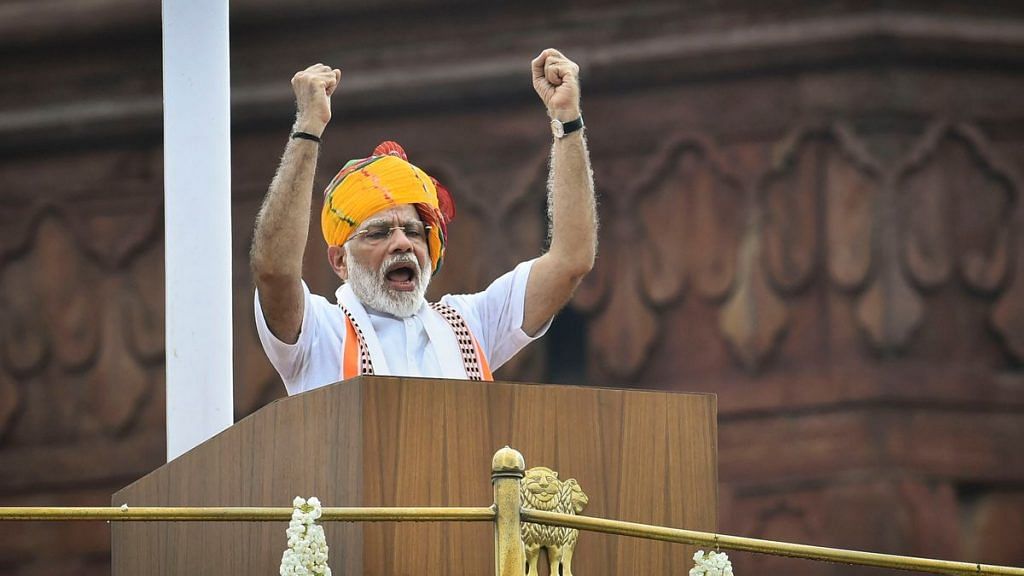Home Minister Amit Shah has declared that NRC will be introduced across India and action will be taken against illegal immigrants as per the law. NRC stands for National Register of Citizens, he said, not National Register of Assam.
After Assam, chief ministers of BJP-ruled states like Haryana and Uttar Pradesh have also hinted at implementing NRC.
These demands have caused an alarm about an impending civil war and a second Partition among several commentators across India. But a nationwide database of Indian citizens is timely, and not a sudden fallout of Assam’s NRC exercise.
Illegal immigration has been a political issue not only for the BJP, but has been a part of public conversations in many states for some time now. It was the UPA government, which was one of the biggest advocates of the National Population Register (NPR) project after the Mumbai terror attacks.
Amit Shah has repeatedly argued that no other country allows illegal immigrants to settle. Illegal migration is a huge problem in India and there can be no two ways about it. Political patronage, vote bank politics, porous borders, inadequate security mechanisms and corruption are some of the reasons for the mass influx of illegal migrants.
But going by the determination of the Narendra Modi government in executing its agenda, it is only a matter of time before it comes out with a full-fledged strategy for a nationwide NRC.
President Ram Nath Kovind in his address to Parliament in June had said, “Illegal infiltrators pose a major threat to our internal security… My government has decided to implement the process of ‘National Register of Citizens’ on priority basis in areas affected by infiltration.”
Also read: Nationwide NRC call targets Muslims but will prove infiltration claims wrong: Mahmood Madani
A state-wise database
As the first step towards introducing a pan-India NRC, the Modi government is considering putting together the National Population Register (NPR). Such a register, prepared state-wise, would include the names of all citizens who are ‘usually’ residents of a particular locality for six months or more. It is similar to the ‘ordinarily a resident’ provision in the Election Commission rules.
The ambitious NPR project is supposed to have a vast database of each and every citizen, complete with demographic details and biometrics. The office of the Citizen Registration and Census Commissioner is mandated to oversee this mammoth exercise.
It is set to be carried out under the provisions of the Citizenship (Registration of Citizens and Issue of National Identity Cards) Rules, 2003 and the Citizenship Act 1955.
Also read: Amit Shah will soon overshadow Modi to emerge as BJP govt’s main voice
The criticism
As expected, there has been a huge uproar over the Modi government’s plan to prepare a national NRC or a National Register of Indian Citizens (NRIC). Critics point out that such an identification of citizens would ‘expose’ the names of those who are migrants on account of employment or any other exigency.
This objection does not hold because the NPR exercise specifically qualifies a ‘usual resident’ as ‘a person who has resided in a local area for past six months or more or a person who intends to reside in that area for the next six months or more’.
Needless to say, the demographic movement would be taken care of and the comprehensive register would be updated regularly to account for each genuine citizen. It will not be a discriminatory exercise against those who are here for work or any other emergency and carry valid permits.
The Assam NRC exercise has faced one big criticism – many genuine citizens of Assam, who have been staying in the state for years, were left out while illegal migrants from across the eastern border made the cut. Critics believe the same thing can happen in the case of a nationwide NRC too.
Soon after the final Assam NRC list was out on 31 August, BJP MLA Shiladitya Dev said he was not “convinced”. “We anticipated that more than one crore Bangladeshi Muslims would be excluded from the final NRC. But today through this NRC, these people have become the citizens of the country,” he said.
Therefore, before the Modi government embarks on a pan-NRC project, it should first plug the loopholes in the system to save itself from the embarrassment of declaring ‘illegal immigrants’ as citizens and defeating the very purpose of an NRC.
It should also initiate a debate on a pan-India NRC and engage with all stakeholders, including political adversaries, to make the exercise a success.
Also read: Adityanath, Khattar want NRC in UP and Haryana: Is India looking at another ‘Partition’?
The author is a member of the National Executive Committee of the BJP and former editor of Organiser. Views are personal.
